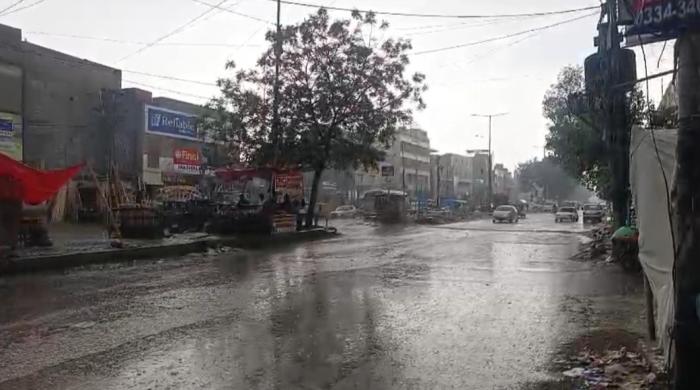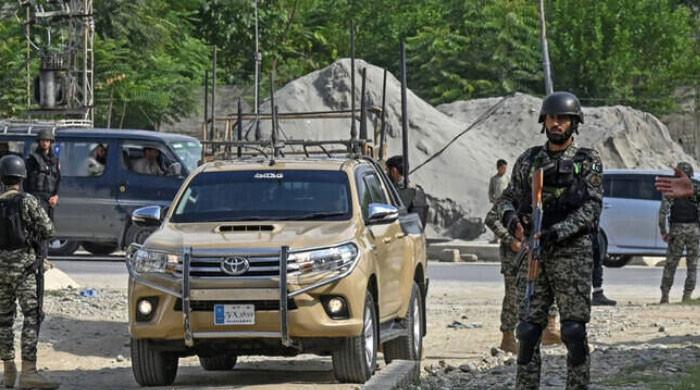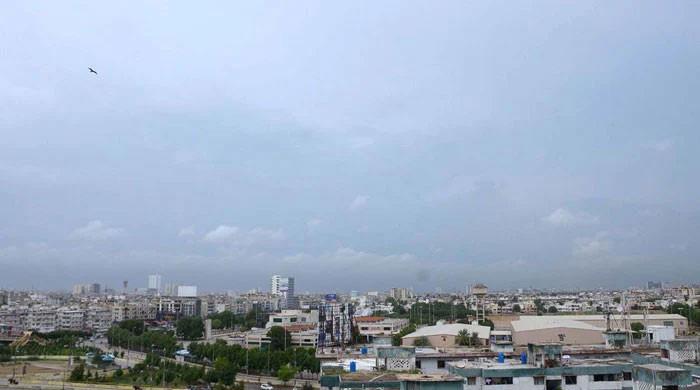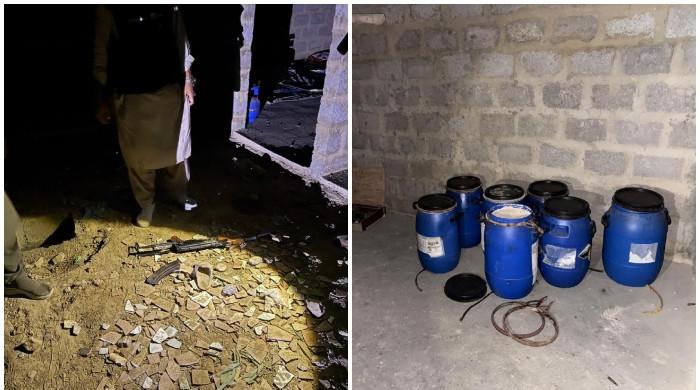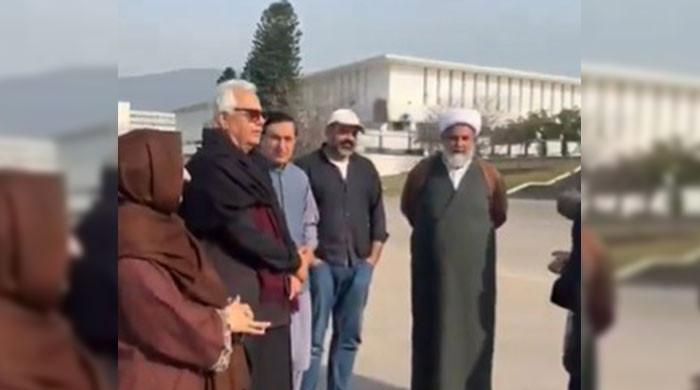Dadu most affected by recent rain-induced floods: COAS Gen Bajwa
Army chief lauds local authorities for their efforts in ensuring the safety of the flood-hit population
September 11, 2022
- COAS Gen Bajwa visits Dadu and its surrounding areas.
- Army chief reviews ongoing rescue and relief work.
- Gen Bajwa lauds local authorities for their efforts in ensuring safety of flood-hit population.
DADU: Chief of Army Staff General Qamar Javed Bajwa on Saturday visited Dadu, labelling it as the most affected district by the recent floods.
The army chief, during his visit to Dadu and its surrounding areas, reviewed the ongoing rescue and relief work following the floods triggered by abnormal rains in rural Sindh, said the Inter-Services Public Relations said in a statement.
Addressing the current flooding situation in the district, Gen Bajwa lauded the local authorities for their efforts in ensuring the safety of the population affected by the floods.
Read more: UN chief lauds Al-Khidmat Foundation for relief operation in flood devastating areas
General Bajwa also assessed the current flooding situation in the district and lauded the local authorities for their efforts in ensuring the safety of the flood-stricken population.
The military's media wing shared that the army chief also spent time with victims residing in relief and medical camps in the areas, following which he directed the provision of 5000 tents to flood-affected people in the district. General Bajwa also interacted with troops who have been busy in rescue and relief activities.
Speaking with the press during his visit to Dadu, the army chief said that he has visited almost all areas affected due to floods across Pakistan including Othal, Naseerabad, Rajanpur, Swat, Larkana, Shahdadkot, and Khairpur.
"Today, I arrived in Dadu," he said, adding that it is the most affected area.
"Manchar and Hamal lake are 100km apart but have now merged," COAS said, emphasising on the gravity of the floods in the district where the government is still engaged in relief and rescue efforts.
Read more: Economic loss from floods in Pakistan reaches $18b
"While rescue work in most areas has been almost completed. We do send our helicopters and boats to rescue people from areas where emergencies due to snake bites, injuries or illnesses. However, rescue and relief work is ongoing here," the army chief shared.
He added that Dadu city’s population is around 475,000, but it has currently increased to around 1 million and there is immense water pressure in surrounding area.
The COAS lauded the efforts of the district commissioner who worked alongside the army to create embankments to save the city.
"In Dadu, we’re still in the first phase of rescuing people and providing relief to them," he said.
Commenting on receiving aid from across the country and abroad, the army chief said that we should not just rely on the international community to provide support.
"Currently, people in Pakistan are providing aid for victims, we are receiving a lot of aid particularly from Punjab and Khyber Pakhtunkhwa. I would also request people from Sindh — both rural and urban — to step up and support our brothers who are in a difficult situation at the moment and contribute towards providing aid," he said, adding that the World Food Programme and USAID have also already arrived to provide relief assistance.
"The UN's Secretary General is also here, while flights from different countries are also arriving [with assistance]," he said.
The army chief further remarked that the affectees are our own responsibility.
General Bajwa also commented on the impact of rain in Pakistan.
“It would rain 50mm all year throughout these areas, but there was no preparation for 1,700mm rainfall,” he said,
He also shared that a Dutch company was commissioned to conduct a study regarding flooding in 2017, which he said would now be needed to revisit.
“People will continue to suffer if we don’t have a drainage system and dams. Army engineers have been given a task and have conducted a preliminary study on it, the COAS said, sharing that the prime minister and chief ministers will be briefed about it next week.
“We will also seek assistance from international experts,” he said.
While addressing the media’s queries, the army chief said that the institution also has plans regarding affectees who’ve been rendered homeless due to floods.
“We have planned to build a village comprised of 50 to 100 families. A prefab village is built in a few days. We are determining a location for it,” the COAS said, adding that the army will build such a village in either Sindh or Balochistan.
Homes in the village — comprising two bedrooms, kitchen, and bathroom — can be constructed in Rs500,000.
Discussing the rise of illnesses due to floods, the head of the armed forces said that it is a challenge to deal with diseases in affected areas.
“Waterborne diseases are challenging, particularly in areas like Dadu,” he said, stressing on providing relief to the people in collaboration with local administration.
“We are hopeful to improve people’s lives while working with the government,” the army chief remarked.
The COAS also spoke about creating breaches to save cities from flooding.
“If water levels in the Indus lessen, we will break embankments and direct water flow toward it. Long-term planning and construction of dams will have to be done,” he said, insisting on the formation of drainage systems.
Inviting other countries in curbing climate change, the COAS said that Pakistan cannot work alone.
“Pakistan’s contribution to climate change is one percent. Our glaciers in Siachen are melting due to excessive heat. People around the world are now raising their voice about increasing temperatures, the impact of which are being felt everywhere,” he said, highlighting the recent heatwaves in Britain.
“This year, we jumped to summer after winter. We did not get to experience spring. The effects of global warming are everywhere,” he said, stressing that the only solution is to go for alternate energy.
“We need to gradually let go of generating power using hydrocarbon, oil, and coal,” he said.
The army chief reiterated on making dams, as they will help produce electricity, curb pollution, and decrease global warming.
“I cannot comment on where dams can be built. But a dam also needs to be built in Swat,” the COAS stated.
The ISPR shared that the army chief was later flown for aerial review of flood-affected areas of Dadu, Khairpur Nathan Shah, Johi, Meher, and Manchar Lake.
— Thumbnail image: Screengrab/Geo.tv




